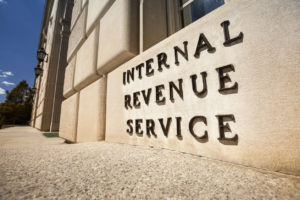Some whistleblowers do well, but many do not. For the ones who have a big payday, you might not think they have tax issues to address, but lots of money means taxes, of course, and everyone pays taxes—even whistleblowers.
Some whistleblowers consider moving to a no-tax or low-tax state. If you are about to recover a very large and long-awaited sum, you might want to consider the tax consequence of where you reside. If you live in California, for example, you will pay up to 13.3 percent in state income tax on your recovery. Would you be just as happy living in Nevada or Florida, which has no state income tax? The laws governing residence and domicile vary, but most of the steps that are appropriate to establish or move one’s residence are common sense. These include physical presence, intent, voting, driver’s license, and vehicle registration.
You may want to seek professional help from a qualified tax attorney to ensure everything is in order, however. Depending on your timing and thoroughness, be aware that high-tax states may claim you are still a resident after you receive your recovery. If you plan your move well in advance and follow the advice of a tax professional, you can reduce any chance of controversy and maximize your chance of success.
What about the tax treatment of attorney’s fees? Most plaintiffs and whistleblowers assume that the most that could be taxable to them by the IRS (or by their state) is their net recovery after costs and fees. Lawyers often receive the gross amount, deduct their fees, and remit only the balance to the plaintiff or whistleblower. Actually, all of the money is technically the client’s money in the government’s view.
For many plaintiffs and whistleblowers, the first inkling that the gross recovery may be their income is the arrival of Forms 1099 in January after the year of their recovery. Generally, amounts paid to a plaintiff’s attorney as legal fees are gross income to the plaintiff, even if paid directly to the plaintiff’s attorney by the defendant. The Supreme Court said so in Comm’r v. Banks, 543 U.S. 426 (2005).
For tax purposes, the plaintiff is considered to receive the gross award, including any portion that goes to pay legal fees and costs. The IRS rules for Form 1099 reporting bear this out. A defendant or other payor that issues a payment to a plaintiff and a lawyer must issue two Forms 1099.
The lawyer and client each should receive a Form 1099 reporting that they received 100 percent of the money. When you receive a Form 1099, you must put the full amount on your tax return. Plaintiffs receive Forms 1099 in many other contexts, which they must explain. For example, plaintiffs who are seriously injured, and who should receive compensatory lawsuit proceeds tax-free for their physical injuries, may still receive a Form 1099. In those cases, they can report the amount on their tax return and explain why the Form 1099 was erroneous.
Plaintiffs and whistleblowers do not have this argument because they are required to report the gross payment as their income. The question is how the plaintiff or whistleblower deducts the legal fees and costs. Successful whistleblowers may not mind paying tax on their net recoveries, but paying taxes on money their lawyers receive has long been controversial.
In 2005, the U.S. Supreme Court resolved a bitter split in the circuit courts about the tax treatment of attorney’s fees in Comm’r v. Banks. The court held—in general at least—that the plaintiff has 100 percent of the income and must somehow deduct the legal fees. That somehow is important.
In 2004, just months before the Supreme Court decided Banks, Congress added an above-the-line deduction for attorney’s fees, but only for certain types of cases. The above-the-line deduction applies to any claims under the federal False Claims Act, the National Labor Relations Act, the Fair Labor Standards Act, the Employee Polygraph Protection Act of 1988, and the Worker Adjustment and Retraining Notification Act, as well as claims under certain provisions of the Civil Rights Act of 1991, the Congressional Accountability Act of 1995, the Age Discrimination in Employment Act of 1967, the Rehabilitation Act of 1973, the Employee Retirement Income Act of 1974, the Education Amendments of 1972, the Family and Medical Leave Act of 1993, the Civil Rights Act of 1964, the Fair Housing Act, the Americans with Disabilities Act of 1990, chapter 43 of title 38 of the United States Code, and sections 1977, 1979, and 1980 of the Revised Statutes.
The above-the-line deduction also applies to any claim under any provision of federal, state, or local law, whether statutory, regulatory, or common law, that provides for the enforcement of civil rights or regulates any aspect of the employment relationship. Beyond that, up until 2018, a deduction for attorney’s fees and costs would be a miscellaneous itemized deduction. That was a below-the-line deduction under I.R.C. section 212.
An above-the-line deduction means you pay no tax on the attorney’s fees. Under the Tax Cuts and Jobs Act of 2017, the miscellaneous itemized deduction was eliminated until 2026. That makes the above-the-line deduction even more important. If you do not qualify, you are paying taxes on money paid to your lawyer that you never see.
Whistleblowers
The tax law also allows for the deduction of legal fees connected with many federal whistleblower statutes. I.R.C. section 62(a)(21) allows for the deduction of legal fees incurred in connection with federal tax whistleblower actions that result in awards from the IRS. Under I.R.C. section 62(a)(20), any action brought under the federal False Claims Act can qualify for an above-the-line deduction of legal fees. See I.R.C. § 62(e)(17). However, up until early 2018, these provisions did not explicitly include SEC whistleblower claims. Whistleblower claims often arise out of employment, and many SEC whistleblowers were employed by the firms whose conduct they reported. As a practical matter, some SEC whistleblowers claimed an above-the-line deduction as an employment case, but now, with the statutory change made in early 2018, even SEC claims are covered.
Under 26 U.S. Code § 62(a)(21), as amended by the Bipartisan Budget Act of 2018, an SEC or Commodity Futures Trading Commission (CFTC) whistleblower receiving an award from the SEC whistleblower program or CFTC whistleblower program can now claim the attorney’s fee as an above-the-line deduction.
Deductibility Limits
One detail of the above-the-line deduction that is easy to miss relates to gross income. Normally, a cash-basis taxpayer is eligible to claim a deduction in the year the underlying payment was made. See I.R.C. § 461(a); Treas. Reg. § 1.461-1(a)(1). However, I.R.C. section 62(a)(20) limits the available deduction to the income derived from the underlying claim in the same tax year. As a result, a deduction allowable under section 62(a)(20) cannot offset income derived from any other source or received in any other year. This is usually not a problem, but occasionally it can be. For example, where there is a mixture of hourly and contingent fees, the issues can be thorny and may require professional help.
Co-relator Payments and Finder’s Fees
In some cases, whistleblowers have other whistleblowers they need to pay. Can those be deducted too? It is not so clear, and the IRS’s answer might be “no.” Some of it may depend on how you orchestrate the documents and the mechanics of payment. Some people may try to cast the payments to others as a type of cost of the case, seeking to lump them in with the legal fees.
The agreements between parties and attorneys can help with this effort. The idea is that legal fees and costs are generally treated the same for tax purposes. So, if the extra payments can somehow be categorized as costs, maybe they qualify for an above-the-line deduction as well.
It is appropriate to consider an additional way that taxpayers may qualify for above-the-line deductions. A taxpayer operating a trade or business and incurring legal fees—contingent or otherwise—need not worry about these issues. In a corporation, LLC, partnership, or even a proprietorship, business expenses are above-the-line deductions.
Some plaintiffs have even argued that they were in the business of suing people. This may sound silly in the case of plaintiffs in employment cases. That is where the argument first appears to have surfaced (long before the above-the-line deduction was enacted in 2004). See, e.g., Alexander v. Comm’r, 72 F.3d 938 (1st Cir. 1995). However, it is quite credible in the case of some serial whistleblowers. Some file multiple claims, and some go on the lecture circuit, especially after their claims bear fruit. Thus, there is a distinct possibility that a whistleblower can, in a very real sense, be operating a business. A proprietor—a taxpayer operating a business without a legal entity—reports income and loss on Schedule C to his or her Form 1040.
To be sure, you are not likely to want to make a Schedule C argument if you have a good argument for a statutory above-the-line deduction. Schedule C to a Form 1040 tax return is historically more likely to be audited than virtually any other return, or portion of a return. In part, this is due to the hobby-loss phenomenon, with expenses usually exceeding income. It is also due to self-employment taxes. Placing income on a Schedule C normally means self-employment income, and the extra tax hit on that alone can be 15.3 percent. Over the wage base, of course, the rate drops to 2.9 percent. Even so, most whistleblowers and plaintiffs do not want to add self-employment tax to the taxes they are already paying.
Still, when it comes to deducting legal fees, the Schedule C at least deserves a mention. Plaintiffs or whistleblowers who have been regularly filing Schedule C for business activities in the past stand a better chance of prevailing with their Schedule C.
Conclusion
Long before and shortly after the Supreme Court’s Banks case in 2005, there was considerable discussion about the tax treatment of legal fees. Plaintiffs’ employment lawyers were especially vocal in the years leading up to 2004, and they were particularly effective in lobbying Congress. That led to the statutory change in 2004, which ended up covering some whistleblower claims, too.
In part, the statutory changes in late 2004 blunted the impact of the Banks case, which even the Supreme Court itself noted in its opinion, yet a vast number of plaintiffs and some whistleblowers still worry about how to deduct their legal fees. In the case of SEC whistleblower claims, a long-awaited statutory change in 2018 brought needed relief.
A large number of successful plaintiffs and whistleblowers end up surprised at tax time, either with the tax result, the mechanics of gross income and deductions, or both. As more SEC whistleblower claims are paid, there should now be fewer whistleblowers surprised by their tax preparer, or worse, by the IRS.

















